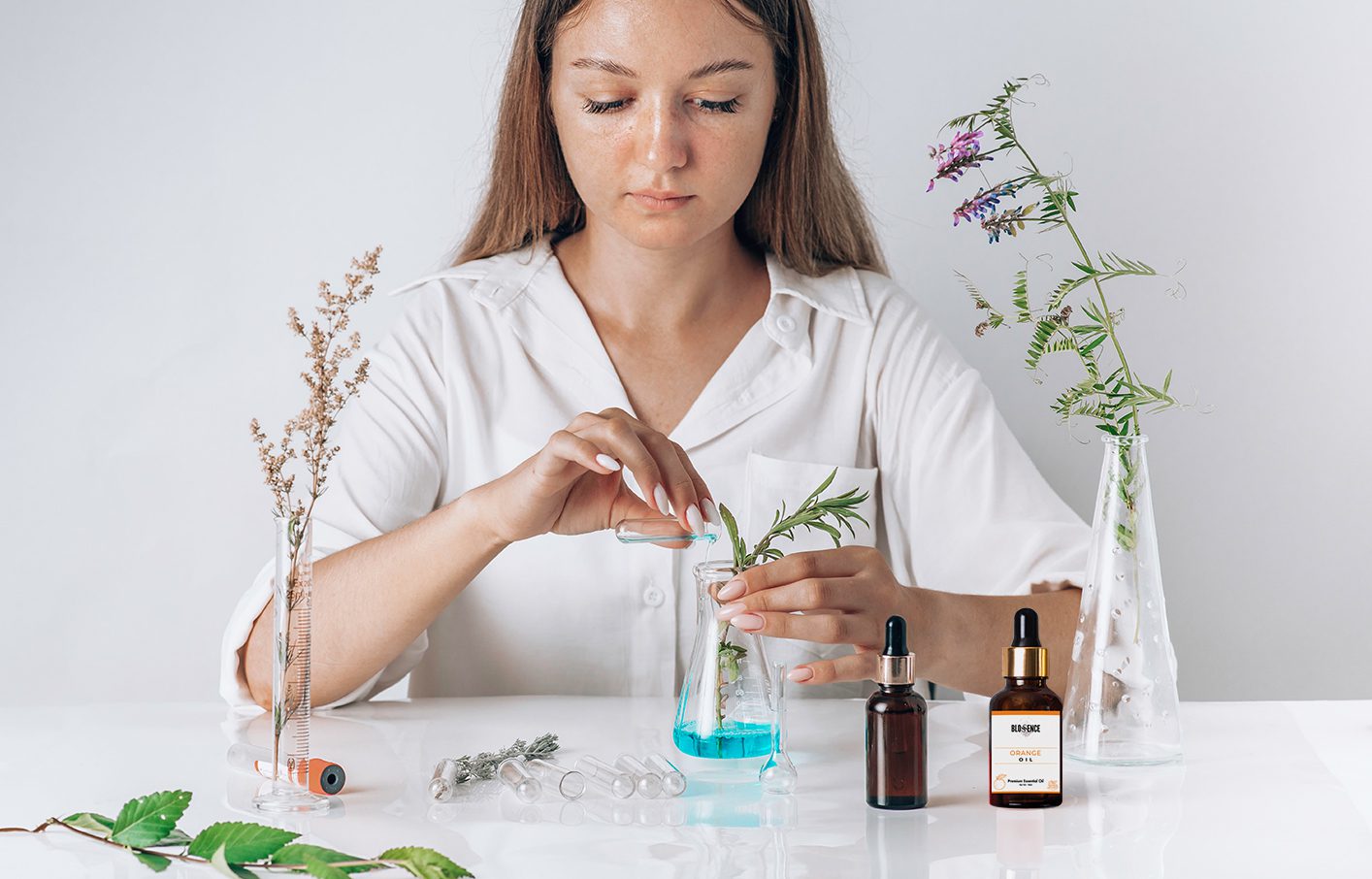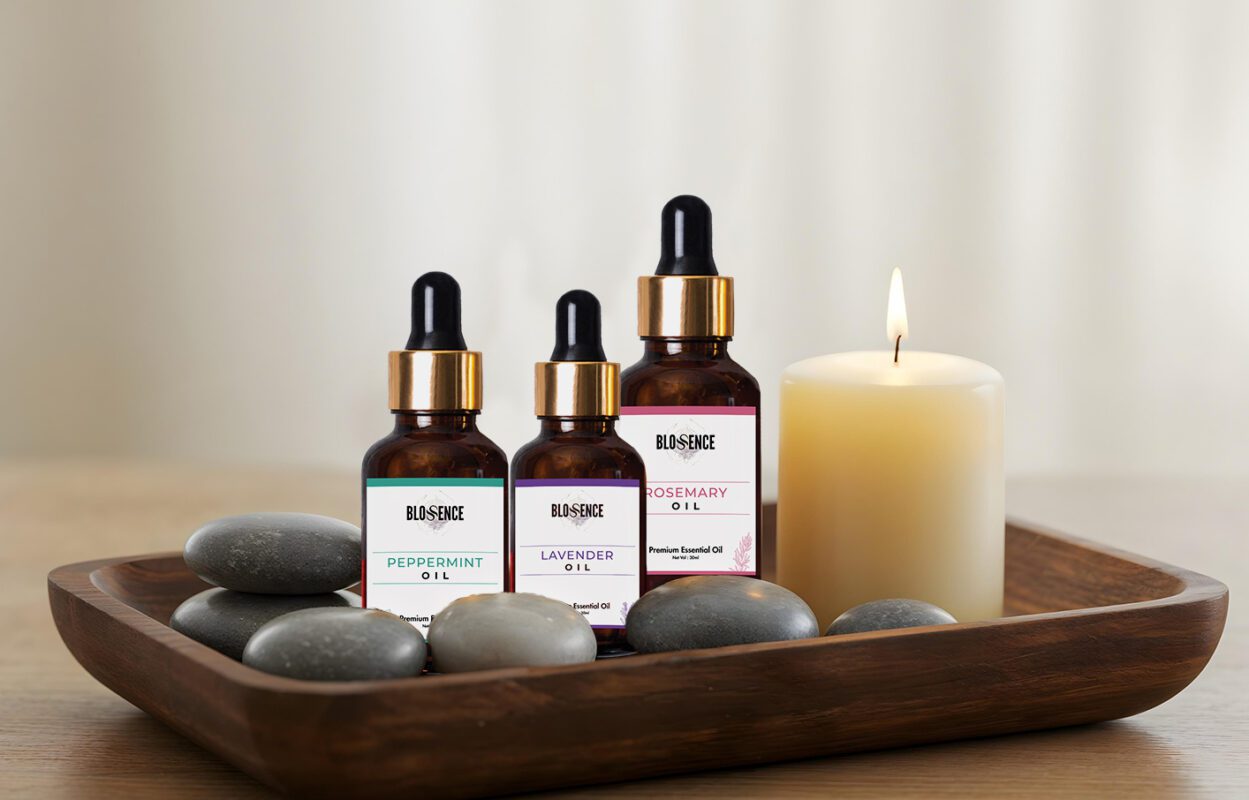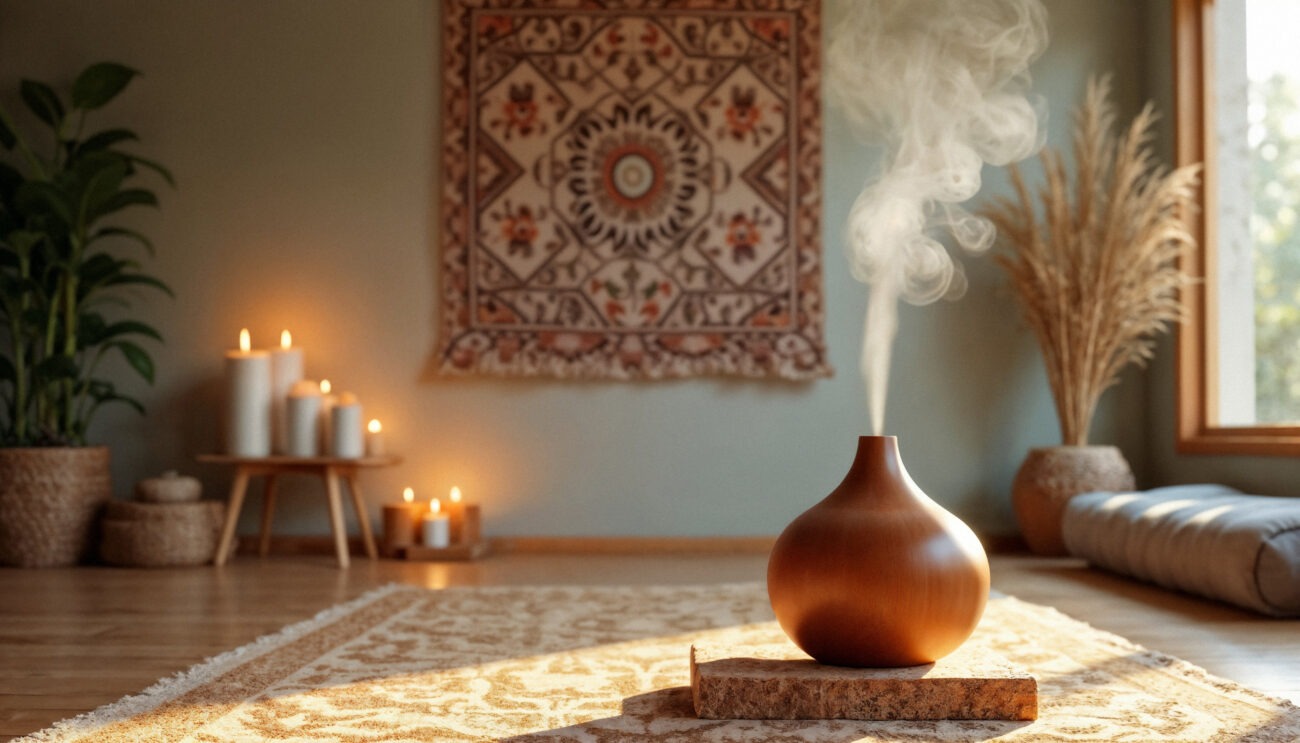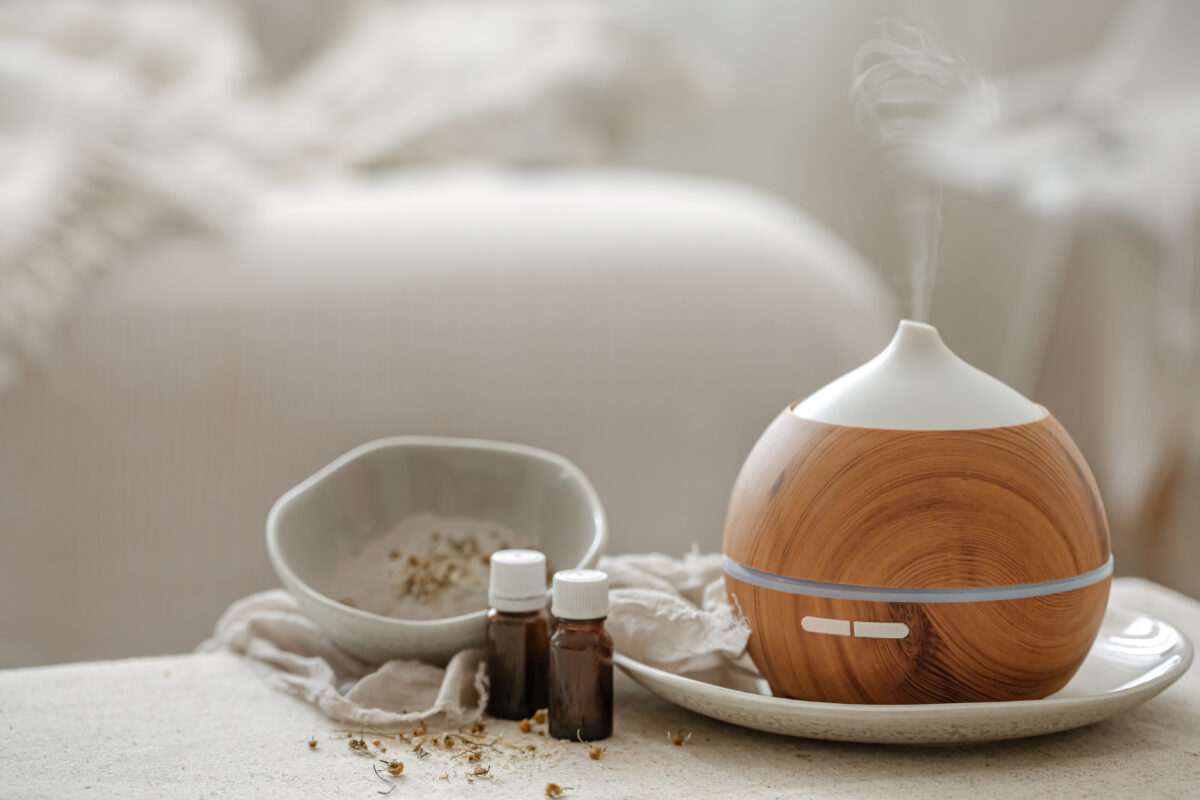The Rise of Aromas in Everyday Life
From room sprays and perfumes to candles and skincare—fragrance is everywhere.
But what many don’t realize is this:
Most of what we smell daily is synthetic.
While both essential oils and synthetic fragrances are used to make things smell good, their origin, composition, and effects on your body are vastly different.
Let’s break it down.
🌿 What Are Essential Oils?
Essential oils are:
- Pure, concentrated plant extracts
- Obtained through steam distillation or cold pressing
- Composed of complex natural compounds that offer therapeutic benefits
Each oil carries the life essence of the plant—its healing, aroma, and biochemical intelligence.
🌱 Example: Lavandula angustifolia (Lavender Oil) is calming, skin-soothing, and promotes sleep.
🧪 What Are Synthetic Fragrances?
Synthetic fragrances are:
- Man-made scent molecules created in a lab
- Often made from petroleum derivatives
- Contain chemicals like phthalates, parabens, and aldehydes
- Common in perfumes, air fresheners, candles, and even skincare
They may smell “nice,” but offer no real therapeutic benefit—and may even be harmful with prolonged exposure.
🔍 Key Differences You Should Know
| Feature | Essential Oils | Synthetic Fragrances |
|---|---|---|
| Source | Plant-based (natural) | Lab-created (chemical) |
| Composition | Complex natural compounds | Simple synthetic molecules |
| Benefits | Therapeutic + emotional | Just smell—no health benefit |
| Impact on Skin | Nourishing (if used correctly) | Can be irritating or sensitizing |
| Eco-friendliness | Biodegradable & renewable | Often polluting & non-renewable |
| Safety Transparency | Clearly labeled & traceable | Often hidden under “fragrance” label |
🧘 Why It Matters for Skin, Mood & Wellness
1. Your Skin Deserves Clean Scent
Synthetic scents are one of the top causes of contact dermatitis and allergic reactions in skincare.
Blossence oils, on the other hand:
- Are 100% pure and steam-distilled
- Contain no fillers, synthetics, or masking agents
- Can be safely used (when diluted) on skin, hair, and body
2. Your Mind Feels What Your Nose Breathes
Essential oils like Lavender, Orange, and Peppermint affect your:
- Emotions
- Hormones
- Stress response
Synthetic fragrances can do the opposite—overstimulating or numbing your senses.
3. Clean Scents = Clean Air
When heated (like in candles or diffusers), synthetic fragrances can release formaldehyde, a known carcinogen.
Pure essential oils naturally purify the air, support breathing, and offer real aromatherapy.
✨ Blossence’s Commitment to Clean Scent
At Blossence, we never compromise on purity.
That means:
- No synthetic fragrances
- No added chemicals or preservatives
- Only 100% steam-distilled, therapeutic-grade essential oils
Every drop comes straight from the plant—with integrity, transparency, and wellness in mind.
🌱 Final Thoughts
When you choose Blossence, you’re choosing:
- Scent with soul
- Aromatherapy with purpose
- Clean living with every breath
Fragrance should never be just about the smell.
It should be about how it makes you feel—mind, body, and skin.
🕯️ Make the shift. Ditch the synthetic. Embrace the essence.
❓ FAQs
Q. Are fragrance oils the same as essential oils?
No. Fragrance oils are synthetic and made to imitate a smell. Essential oils are natural plant extracts with real benefits.
Q. Why does Blossence avoid synthetic fragrances?
Because we believe in true wellness—without chemicals that harm your body or environment.
Q. Can I use Blossence oils in place of perfume?
Yes! Try dabbing diluted Lavender or Orange oil on your wrists or clothes for a gentle, clean scent.












